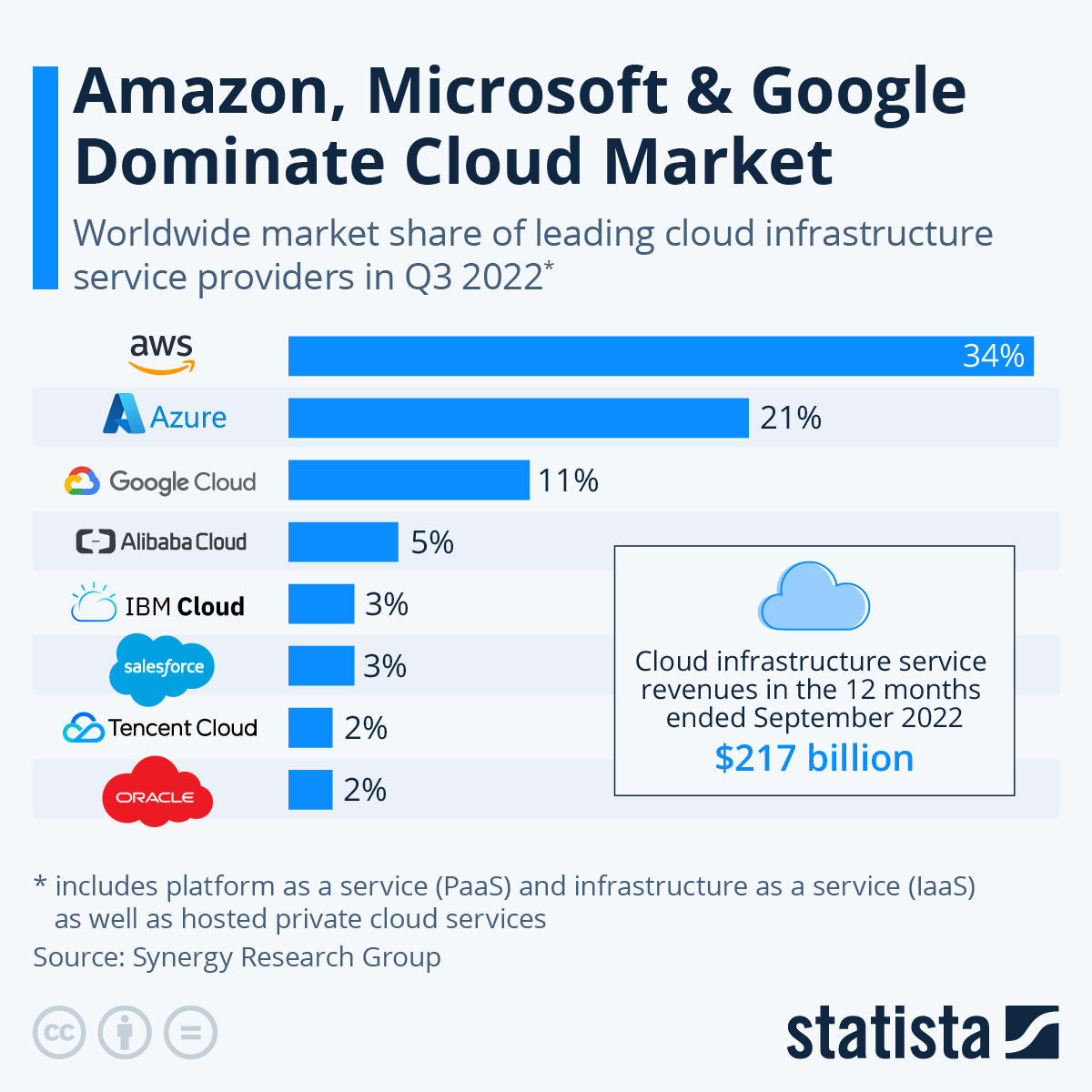Covid-19 brought a disruptive shift to the business world, leading business leaders to embrace new work settings, including remote work settings and collaboration. Microsoft Chairman and CEO Satya Nadella said – "We saw more than 200 million Microsoft Teams meeting participants in a single day, generating more than 4.1 billion meeting minutes. Also, Teams now has more than 75 million daily active users, and two-thirds of them have shared, collaborated, or interacted with files on Teams. Satya further stated, "We've seen two years of digital transformation in two months. Covid-19 may be behind us, but the remote culture seems to be accelerating since then, with organizations realizing how valuable remote culture is for operational efficiency.”
Cloud Computing – A Key to Remote Working and Collaboration
According to Fortune Business Insights, the global cloud computing market was valued at USD 405.65 Billion in 2021 and is anticipated to grow to USD 1712.44 Billion by 2029 at a CAGR of 19.9% during the forecast period. While maintaining compliance and security, cloud readiness gives remote workers quick access to their data, tools, and peer collaboration. Besides, flexibility, low upfront costs, and scalability are the critical reasons for enterprises' swift adoption of cloud computing solutions. These factors are crucial for fueling the growth of the global cloud migration services market.
How does Cloud Computing Facilitate Remote Work?
To understand how cloud computing assists in remote work, let's take the example of employees who are perhaps the biggest winners in a pandemic struck environment. A recent survey shows that the majority of employees prefer working from home. 82% of respondents agreed or strongly agreed that working from home was enjoyable. Approximately 60% of respondents said working from home makes them feel less stressed, and 66% said it makes them more productive. The benefits of Cloud-based remote work extend beyond this scenario. Let's talk about how cloud computing assists in remote work:
Popular Use case of GrubHub that Leveraging Amazon Workspaces for Employees
GrubHub, Inc., a $1 billion food-service online and mobile platform with the US's most wide-ranging network of restaurant partners, aimed to help regional restaurants and ensure driver safety. The organization implemented a Work From Home (WFH) strategy across all divisions, using Amazon WorkSpaces to implement business continuity and enhance employee safety.
How Cloud Computing Enables Cloud Collaboration?
Markets and Markets forecast that by 2026, the global Enterprise Collaboration Market size will increase to USD 85.8 billion from USD 47.2 billion in 2021 and at a CAGR of 12.7% during the forecast period. The Enterprise Collaboration Market is fueled by adopting cloud-based services, accelerating collaboration. To enhance cloud collaboration, organizations are extensively leveraging cloud-based services that allow several users to work on the same file, and make changes in real-time. Let's check how cloud computing facilitates collaboration.
Customer Success Story – Softura Enabled Heightened Efficiency for a client through Microsoft 365 Implementation
Challenges
One of the leading dietary supplements and formulations companies in the United States was going through mergers and acquisitions (M&A). Since the company was running different systems, collaboration tools, and separate active directories for managing user accounts, it became a challenge for the existing IT staff and support models between entities to integrate into one cohesive team.
Solution
- Migrated Active Directory, Exchange Online, SharePoint, Teams, and OneDrive.
- New Merged Tenant Configuration, including Azure Active Directory set up.
- Maintained three separate domains for three businesses. Sync content to a cloud-based tenant. User management through Active Directory
Softura eliminated the need for multiple IT support teams to manage user accounts and service requests manually. Besides, our client got rid of multiple profiles for a single user. There was further no requirement to update the change in the role of an employee and reporting structure in different places, as it was centrally managed.
Take Your Workplace to The Next Level with Cloud Computing
For organizations contemplating which cloud providers to trust, the three big global cloud giants - Microsoft Azure, Amazon Web Services (AWS), and Google Cloud Platform continues to rule the cloud market as cloud infrastructure providers. In the third quarter of 2022, these platforms continued consolidating and growing their positions as cloud market-share leaders.
Get a Trusted Cloud Partner
Cloud computing is an ideal solution for organizations wanting to maintain a remote workforce, increase remote staff capabilities, or add an extra layer of security to current remote operations. We at Softura are partnered with Microsoft Azure, AWS, and Google Cloud Platform. As a cloud solution partner, we take pride in helping businesses transform and lead towards higher efficiency, productivity, and convenience. Our “Cloud First” approach help businesses identify cloud integration opportunities. Our cloud assessment comprises a detailed analysis that helps develop a scalable, reliable, and cost-effective strategy for your cloud migration. Besides, businesses wanting to build new applications or run existing ones can rely on Softura’s infrastructure services powered by Microsoft Azure. We deliver on-demand infrastructure services tailored to your business requirements.
To leverage the benefits of cloud computing, the first step is to analyze processes currently hosted on your company servers and determine which ones can be moved to the cloud. This can include things like email, file storage, and certain software applications. Once you have identified the processes that can be moved to the cloud, you can begin the process of migrating them and reaping the benefits of cloud computing, such as increased scalability, reduced costs, and improved collaboration.
However, consulting with cloud experts like Softura, who can help you identify the best cloud solutions for your business and guide you through the migration process, is recommended. Don't wait any further! Connect with Softura today and take the first step towards a more efficient and cost-effective business model with the power of cloud computing.

